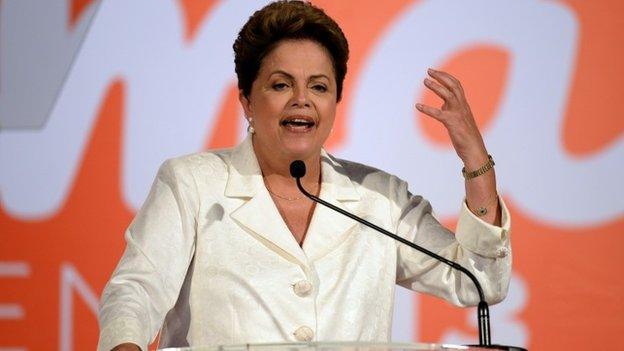Dilma Rousseff: Facing a perfect storm
- Published
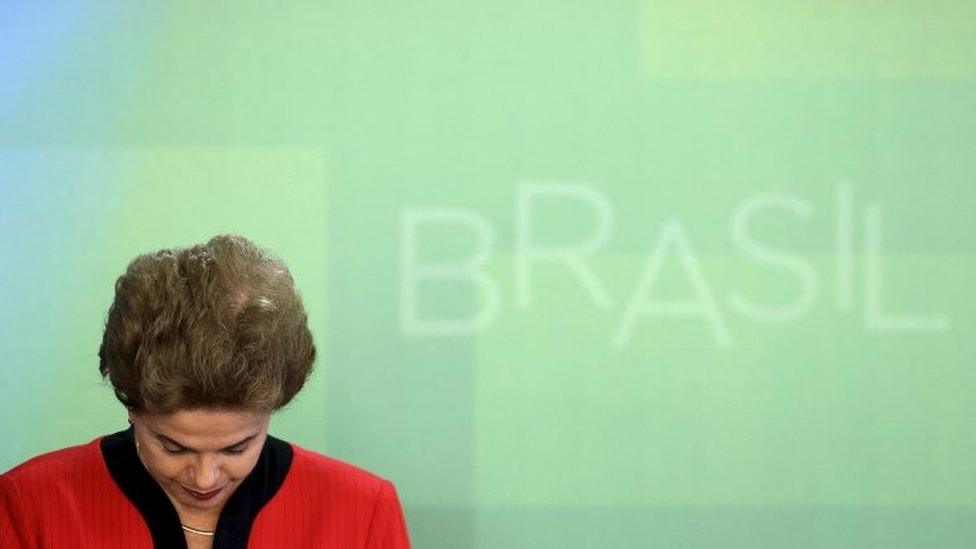
Dilma Rousseff's government survived mass anti-government protests in 2013 but is now facing a host of new problems
Dilma Rousseff, the first woman to be elected president of Brazil, has had her share of career ups and downs.
But even a leader used to the rollercoaster of Brazilian politics could hardly have predicted what some analysts are calling "a perfect storm".
Four years ago, when Ms Rousseff attended the opening ceremony of the Olympic Games in London, she would have been looking forward to 2016 as a year when she could shine.
Brazil had recently overtaken the UK to become the world's sixth-biggest economy with a growth of 2.7%.
While by 2012 growth was beginning to slow down, the economy was still expanding and Ms Rousseff was probably hoping that the prospect of hosting the 2016 Summer Olympics would attract further investment.
Downward spiral
Instead, the news in the years since have been dominated by stories about delays in the construction of some facilities and pollution in Rio's famous bay.
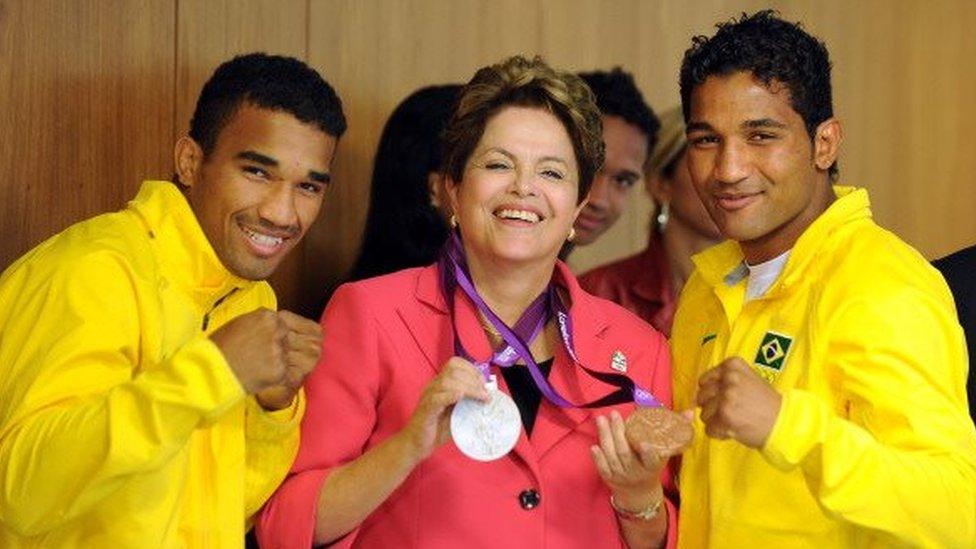
In 2012, things were looking a lot rosier for President Rousseff
Other host countries have of course also suffered from delays and doubts about their ability to pull off the Games, but Brazil and its president have had to face added difficulties.
An economy whose performance had been praised has tanked.
The country is already going through its worst recession in more than two decades and it does not look set to recover anytime soon.
The International Monetary Fund (IMF) predicts Brazil's economy will have contracted by almost 8% between January 2015 and December 2016.
But it is not just the poor performance of the economy which is giving Ms Rousseff a headache.
In the past months, an outbreak of a virus which was first identified in monkeys in Uganda in 1947 has hit the headlines.
The Zika virus, which in many cases just causes mild flu-like symptoms, has been linked to a growing number of babies being born with underdeveloped brains in Brazil.
In February, the World Health Organization declared the cluster of microcephaly in Latin America a global emergency.
Little trust
These developments come at a time when trust in Brazilian politicians has been eroded by a massive corruption scandal involving top politicians from various parties.
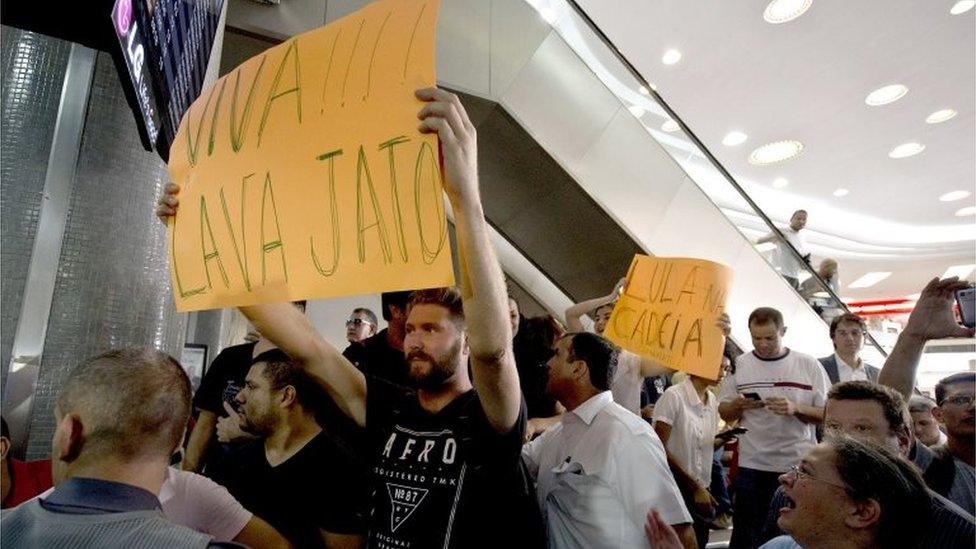
Operation Lava Jato (Car Wash) has uncovered corruption at the highest level in state-oil giant Petrobras and other firms
The investigation into the scandal, Operation Car Wash, has already led to the arrest of dozens of politicians, some of them high-ranking members of Ms Rousseff's Workers' Party.
The party treasurer, Joao Vaccari Neto, has been sentenced to 15 years and four months in jail for corruption and money laundering.
Just days ago, a judge issued an arrest warrant for Ms Rousseff's campaign manager, Joao Santana.
Mentor under the spotlight
And most damagingly for Ms Rousseff, her political mentor and predecessor in office, ex-President Lula, was briefly detained by police for questioning on 4 March by investigators from Operation Car Wash.
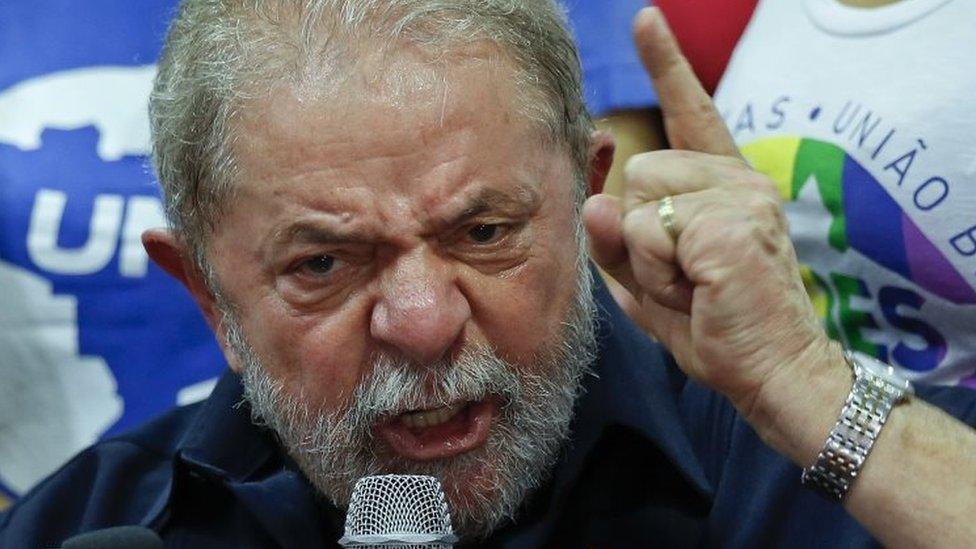
Ex-President Lula has angrily rejected the allegations of corruption made against him
While prosecutors said that Ms Rousseff was not under investigation for Operation Car Wash, she is fighting her own battles in Congress, where there are attempts under way to impeach her.
Her political rivals are accusing her of using the country's pension fund to shore up budget gaps, which she denies.
All of the above have caused her approval ratings to plummet.
According to a poll by Datafolha, just 11% of respondents across the country said the president's performance was "good or excellent".
Despite this series of blows against her and her administration, Ms Rousseff seems undeterred.
Following Lula's much-publicised questioning, she said the investigations "must continue so those responsible are punished".
It would seem she wants to ride the storm rather than be drowned in it.
- Published4 May 2016
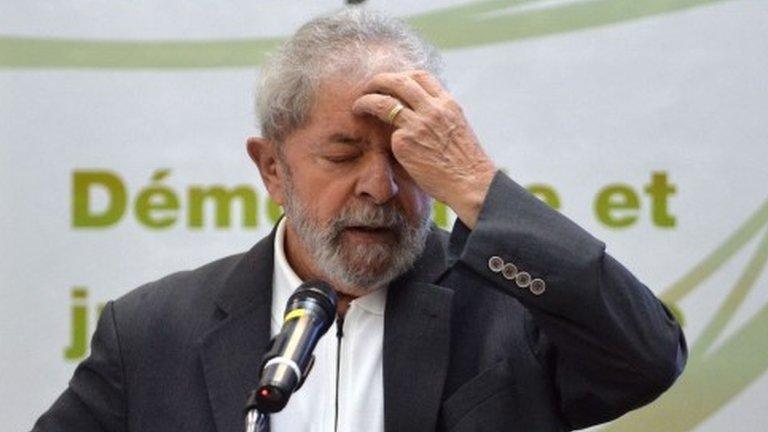
- Published29 January 2016
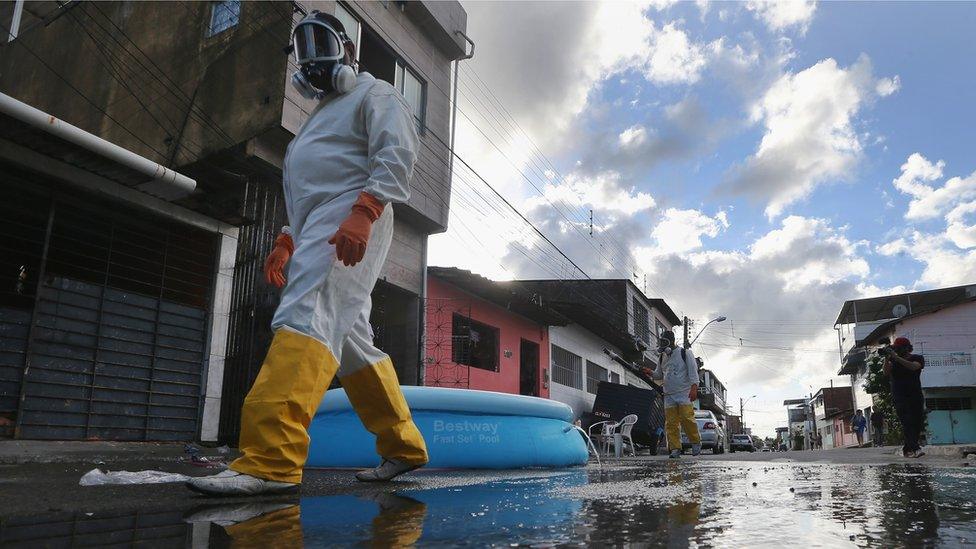
- Published19 March 2015
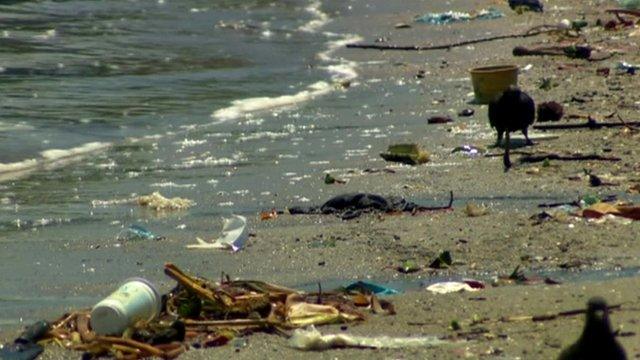
- Published13 April 2016
